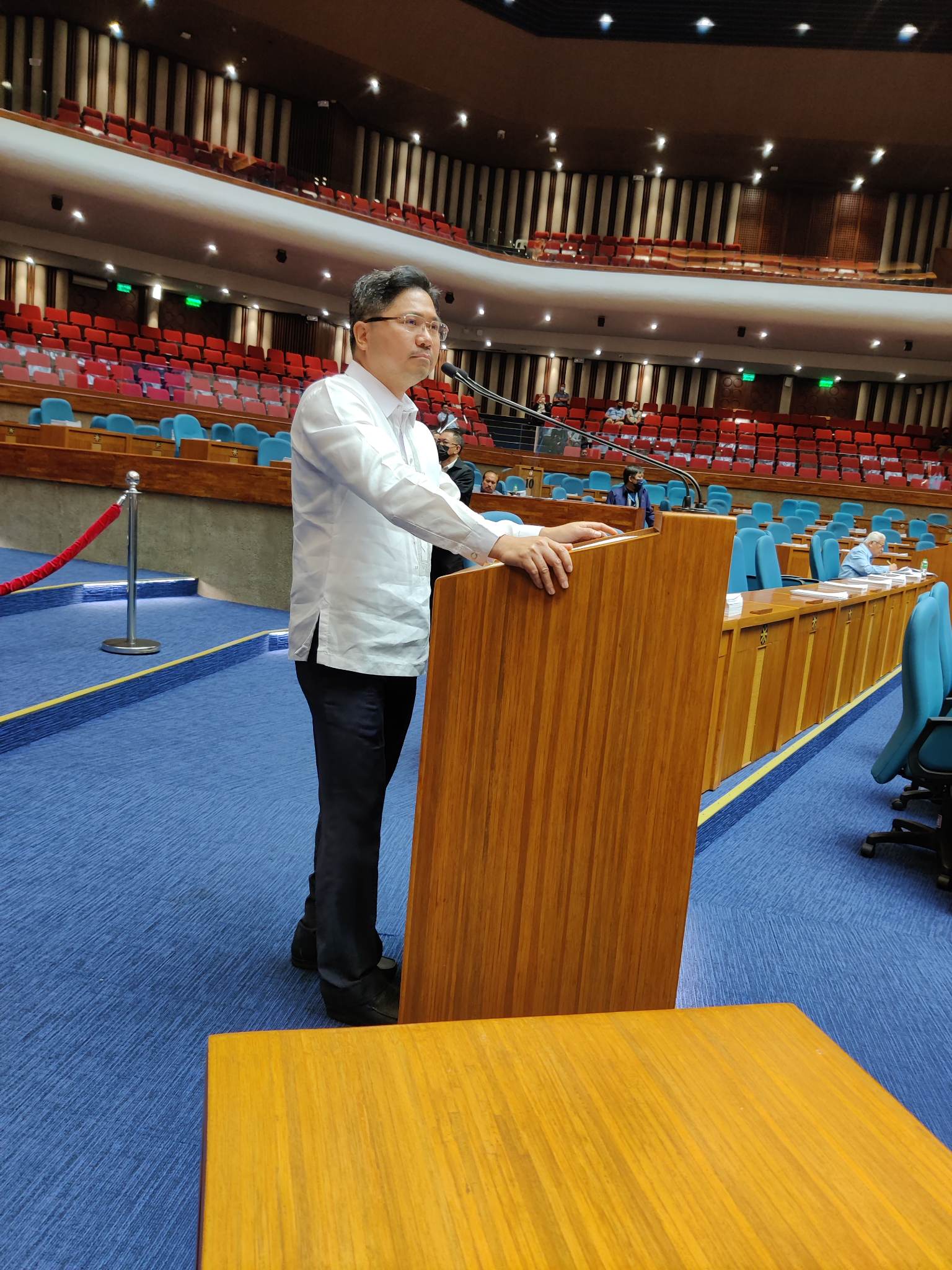MANILA, Philippines—The proposed Magna Carta for Filipino Seafarers (House Bill No. 7325) passed on second reading at the House of Representatives on Wednesday (March 1).
The bill, which outlines the rights and welfare of seafarers, was approved by a voice vote, or viva voce.
Several provisions of the bill, however, were questioned by Gabriela Rep. Arlene Brosas, who expressed concern that the bill did not provide security of tenure for seafarers in foreign setups.
Kabayan Rep. Ron Salo, sponsor of the bill, said Philippine rules on security of tenure do not apply to foreign contracts.
“For the Magna Carta for Seafarers, if they are still working six months after, they would be regularized — whether that be on the shipowner side, on the manning agency, or wherever they are working, usually after six months they would have permanent jobs,” said Brosas in Filipino.
“But this is different right?” Brosas said.
“Precisely…because domestic regulations are different with the international, what she mentioned…pertains to domestic seafarers, after six months that they are engaged, then they are considered regular,” Solo said in reply to Brosas.
“But when it comes to international seafarers, they are regular for the period that that particular contract exists,” Salo said.
Salo, who chairs the House committee on overseas workers affairs, sought to assure Brosas that seafarers have security of tenure during the duration of their contracts.
“There is security of tenure for both, there’s one for domestic, after six months it will continue,” Salo said.
“But for the international overseas contract workers…they will be secured for that particular period stated in their contract,” he said.
“So, that is different. We cannot merge these two rules because a domestic worker is different from an overseas contract worker,” he added.
Escrow provision
Brosas asked Salo about Section 51 of the bill, which provided that monetary awards given through an arbiter—like the National Labor Relations Commission—to a seafarer disabled in the line of work would be held in escrow if the employer disputes it.
Brosas said she feared that seafarers, who need the money for their disability, would be held hostage by the provision, because the seafarer couldn’t get the award until legal proceedings are completed.
Salo said payment of disability claims would be given, adding that the amount to be disputed—or claims that would go beyond the tenure of the worker, possibly due to inability to work other jobs—would be the one to be held in escrow.
“It is stated here that we would give the benefits to him. What we are talking about here is what would be on top of that, the discretionary award,” Salo said.
“Whatever is written in the contract, then he gets it. But if we are talking about anything given on top of that, on top of what is written, that may be contested,” he said.
But Brosas said even claims above the disability award are important for seafarers and their families.
“Having that kind of injury, if the physician of the company for example says that you can only have this benefit but they would be affected for a lifetime because they cannot work the same job due to that injury, or if they cannot work totally then the compensation for them would include something beyond that,” Brosas said.
“But the seafarers and the family who would get the award, this is still valid and they should receive that compensation. This is what you have been referring to as something on top of the award,” she added.
The proposed Magna Carta for Seafarers is considered as a priority measure as it would benefit thousands of Filipino seafarers especially as the Philippines is one of the top sources of shipping manpower in the world.
Speaker Ferdinand Martin Romualdez in December 2022 gave assurances that the measure would be passed by the House. With reports from Meralyn Melitante and Mae Anne Bilolo, trainees
